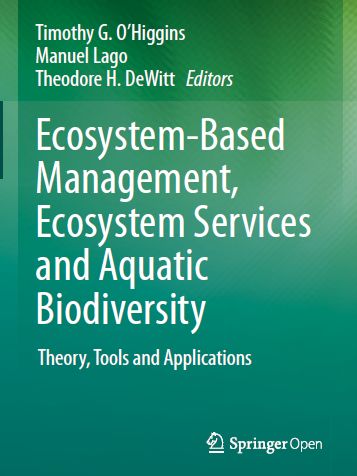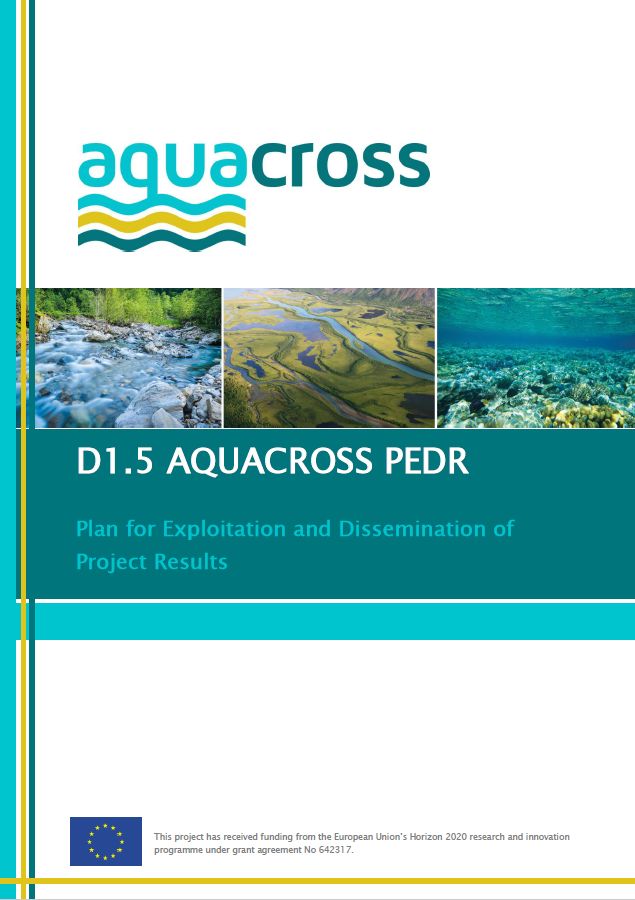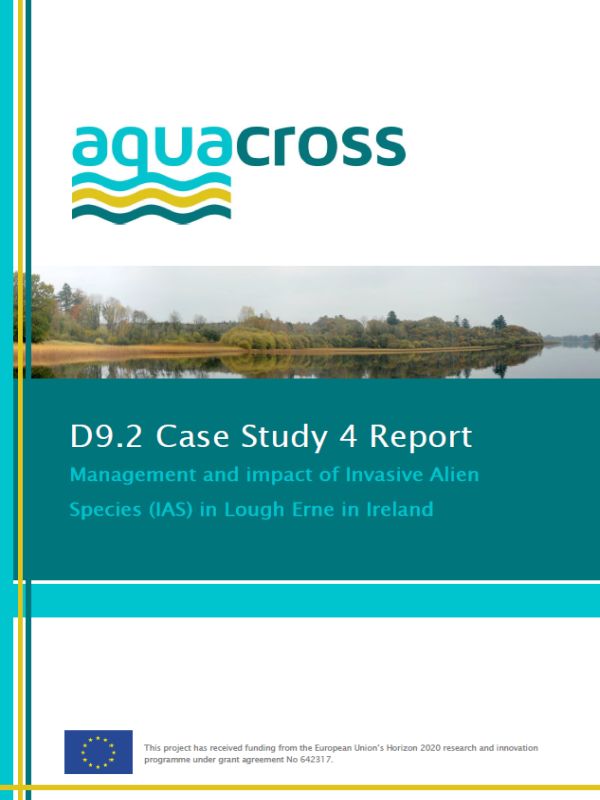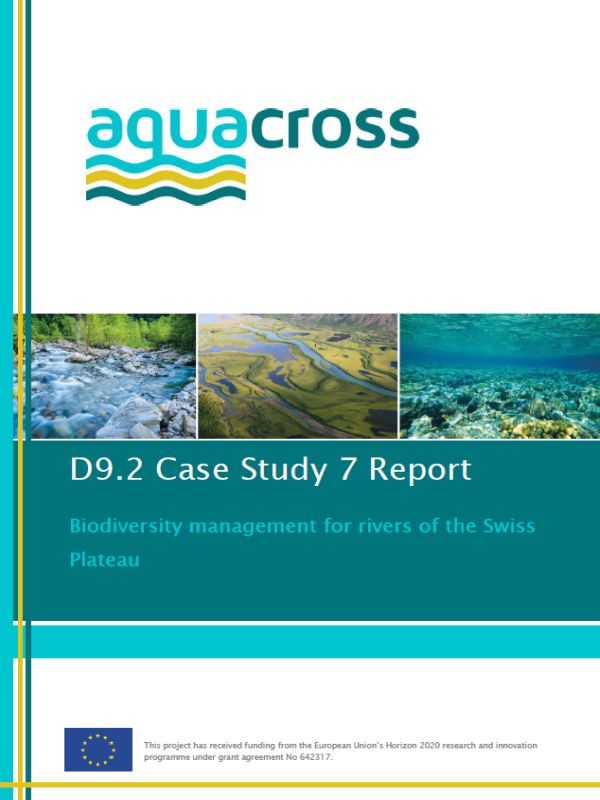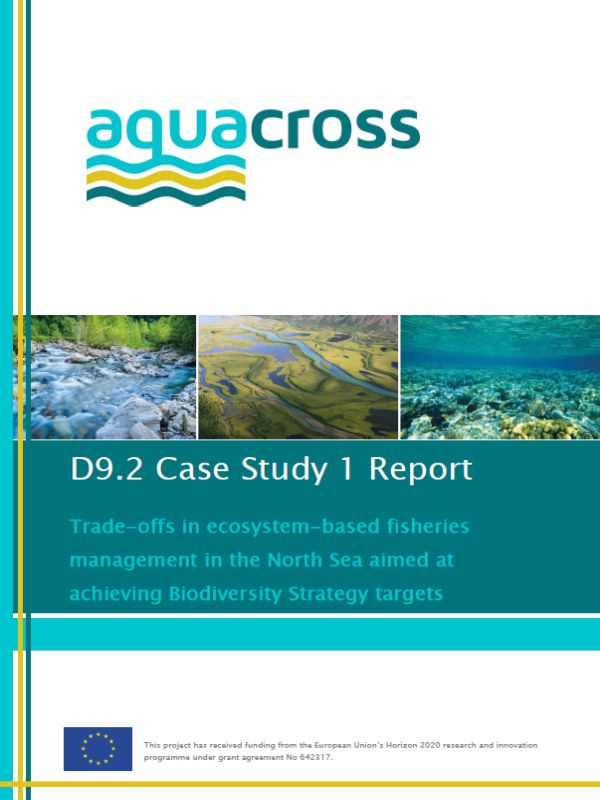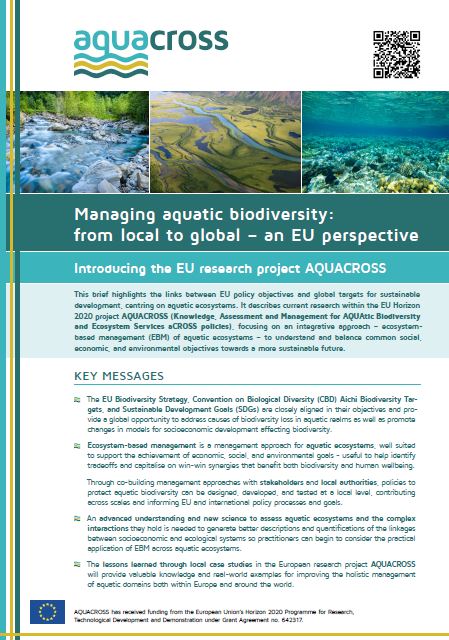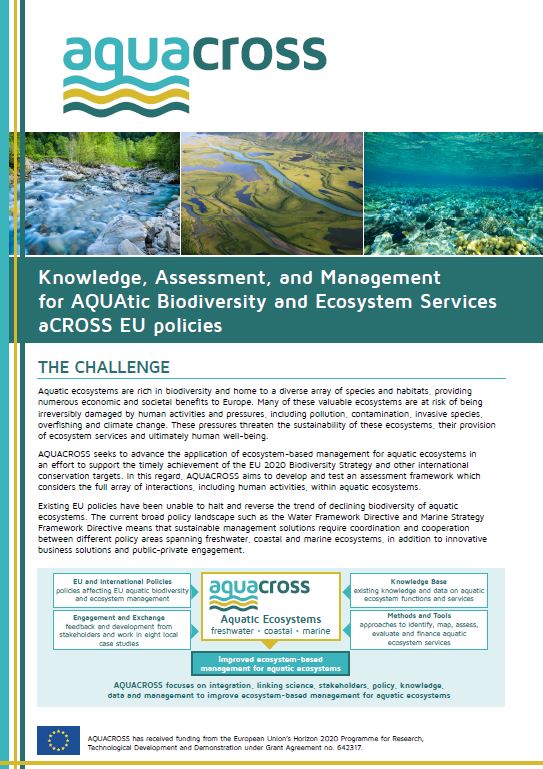Protecting Aquatic Biodiversity in Europe
How much do EU environmental policies support ecosystem-based management?
- Publication
- Citation
Rouillard, J., Lago, M., Abhold, K. et al. 2018: Protecting aquatic biodiversity in Europe: How much do EU environmental policies support ecosystem-based management? Ambio (47)1. doi:10.1007/s13280-017-0928-4
As part of the Horizon 2020 project AQUACROSS, Ecologic Institute and consortium members have published an article in the peer-reviewed journal Ambio examining the potential of Ecosystem-Based Management as an integrative policy concept for improving the integration of freshwater, coastal and marine policies. The article further examines synergies, barriers and opportunities between key European environmental policies to protect aquatic biodiversity across the three water realms. The article is available for download.
Despite a broad and extensive policy landscape, the EU has been unable to halt and reverse declining biodiversity of aquatic ecosystems. Their sustainable management requires better coordination between different policy areas spanning freshwater, coastal and marine ecosystems. At the same time, ecosystem-based management (EBM) has been promoted as a holistic and integrative approach for the safekeeping and protection of aquatic biodiversity. The research thus evaluates the potential for EBM to support the coordinated implementation of the four key environmental policies aiming to protect aquatic biodiversity: the Birds and Habitats Directives (BHD), Water Framework Directive (WFD) and Marine Strategy Framework Directive (MSFD).
The paper first develops a set of key EBM policy-relevant principles for the protection of aquatic biodiversity, then assesses the degree to which the four directives individually support these EBM principles and can work synergistically to implement EBM. The analysis compares the legislative text of the four Directives against the six EBM principles, undertaking a cross-analysis to assess the extent to which each Directive reflected elements of these principles as well as how well-represented these principles were throughout all four Directives. The strength and weaknesses of each Directive were assessed against each principle.
The analysis concludes that EBM can, for the most part, be made operational by implementing these key environmental directives. The EU policy framework in the form of the Nature Directives, WFD and MSFD support several key dimensions of EBM (e.g., ecological integrity, acknowledgement of multiple scales, multi-disciplinary knowledge, stakeholder participation, transparency, policy coordination, adaptive management). The policy review presented in this paper also highlights gaps in the four directives regarding several important dimensions of EBM, in particular with regards to: the implementation of the ecosystem services approach, the integration of planning processes and monitoring programmes, the integration of local knowledge in the decision-making process, coherent approaches to exemptions and derogations and the consideration of uncertainties in management and governance. It is likely that, while EU environmental policies provide a sound legislative basis for implementing EBM, as demonstrated in this research, further streamlining and coordination across the wider spectrum of European policies is warranted for enabling EBM in practice.

